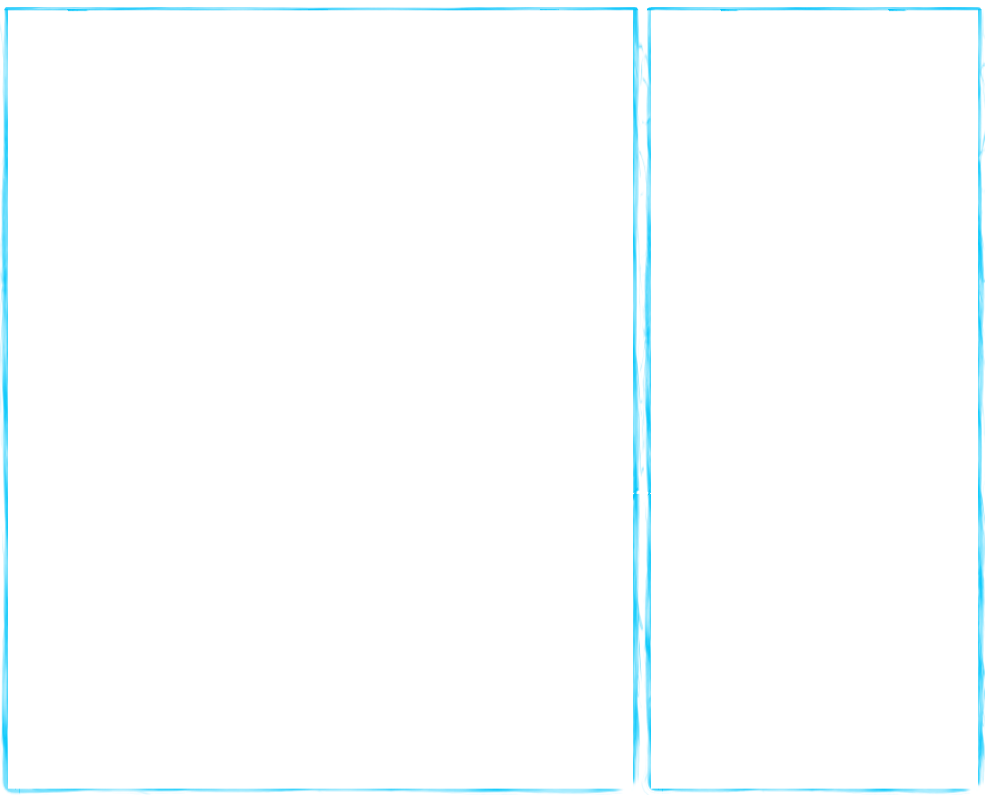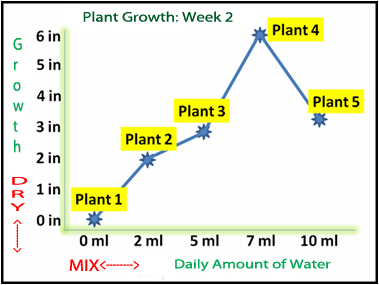

All Science Content
Similar Content
Scientific Method Lesson
Experimental Variables Lesson
Scientific Method Game
Variables Game
Scientific Method/Variables Quiz
Vocabulary mouseover for definition
Scientific Method
Investigative method that scientists use to solve problems Hypothesis
Educated guess about the answer to the problem Conclusion
The results of the test that was used to support the hypothesis Variables
Factors in an experiment that are causes, effects, or constant Independent Variable
Also called Manipulated Variable;
The variable in an experiment that you change Dependent Variable
Also called Responding Variable;
The variable in an experiment that is the result of the variable you changed Controlled Variable
Also called Constant Variable;
The variable in an experiment that stays the same throughout the experiment Experimental Design
The design of an experiment set up to support the testing of the hypothesis and drawing valid conclusions.
Must include:
Identifiable problem
Testable hypothesis
Valid Conclusion

Similar Content
Scientific Method Lesson
Experimental Variables Lesson
Scientific Method Game
Variables Game
Scientific Method/Variables Quiz
Vocabulary mouseover for definition
Scientific Method
Investigative method that scientists use to solve problems Hypothesis
Educated guess about the answer to the problem Conclusion
The results of the test that was used to support the hypothesis Variables
Factors in an experiment that are causes, effects, or constant Independent Variable
Also called Manipulated Variable;
The variable in an experiment that you change Dependent Variable
Also called Responding Variable;
The variable in an experiment that is the result of the variable you changed Controlled Variable
Also called Constant Variable;
The variable in an experiment that stays the same throughout the experiment Experimental Design
The design of an experiment set up to support the testing of the hypothesis and drawing valid conclusions.
Must include:
Identifiable problem
Testable hypothesis
Valid Conclusion

EXPERIMENTAL VARIABLES
What in the World Are Variables?Well... a variable, in science, can be anything. More specifically, in an experiment, a variable can cause something to change, be the result of something that changed, or be controlled so it has no effect on anything.
Variables that cause something to change are called independent variables or manipulated variables. Whether you choose to call it an independent variable or a manipulated variable depends on the term you pair it with. The acronym DRY MIX can help you keep these paired terms straight. Further discussion of this will be a little down the page.
Variables that are the result of something that changed are called dependent variables or responding variables. Again, the term you choose to use depends on how you pair the words.
Variables can sometimes affect an experiment when you do not want them to. In order for you to conduct a proper investigation, you have to set up the right environment that is as controlled as possible. You need to make sure that you control the effects of as many factors, or variables, as you can so that you can prove your hypothesis. Some of these variables will stay the same throughout the whole investigation. These are the controlled or constant variables. They do not get to play along in the experiment, even though they may be indirectly part of it.
Since variables are necessary for an experiment, you need to make sure they are properly identified. By the time you have arrived at your hypothesis, you have a pretty good idea of what you are trying to prove. Hypotheses are usually written in "if-then" format because it is a great way to make sure your "educated guess" is specific to what you are going to test. L@@K below:
The Scientific Method Lesson relates how Heidi set up an experiment to show the relationship between plant growth and amount of water given to the plants. The stated problem was
"Does the amount of water affect the growth of bean seeds?"
Heidi's hypothesis was written in "if-then" format: "If I water my plants too little, then they will not grow very much." The if-then statement is made of the independent/manipulated variable and dependent/responding variable (independent-dependent and manipulated-responding are paired terms). So the hypothesis can be written with this style:
If independent variable, then dependent variable.
If I don't water my plants, then they will die.
If I don't study for my test, then I will fail.
Some experiments will show data on a graph. It is useful to
remember the acronym DRY MIX, not only to help you remember
the paired terms, but which axis you will graph the data on.
DRY (Dependent-Responding on Y-axis)
MIX (Manipulated-Independent on X-axis)
Use this paragraph as a guide for identifying the hypothesis, independent and dependent variables
A student was performing an experiment about the rate of photosynthesis in a certain type of algae when it is exposed to different colors of light. Write an if-then hypothesis about this experiment. Identify the independent variables and dependent variables.
Hypothesis Hint:
Identify the 2 key variables.
In this case:
rate of photosynthesis in algae
different light colors
Put them in the form of an if(cause)-then(effect) statement.
Try putting either one in the statement to see which makes more sense.
a. If the photosynthesis rate changes, then the algae will be exposed to different light colors.
b. If the algae is exposed to different light colors, then the photosynthesis rate will change.
Statement "b" is the better hypothesis, because you are changing or manipulating the light to get the result of photosynthesis change.
Independent Variable and Dependent Variable Hint:
Identify the 2 key variables.
In this case:
rate of photosynthesis in algae
different light colors
"if" phrases are the independent variables;
"then" phrases are dependent variables;
independent variable: different light colors
dependent variable: rate of photosynthesis in algae